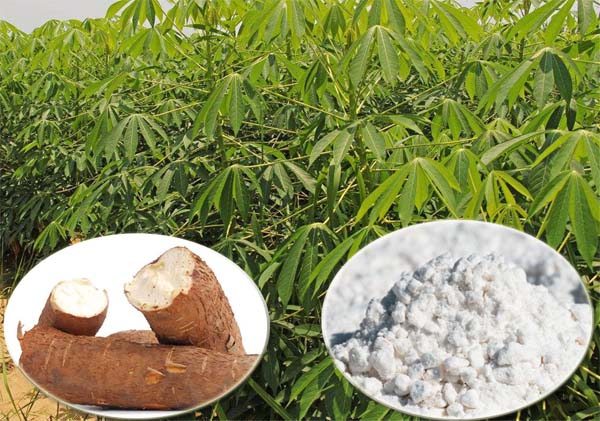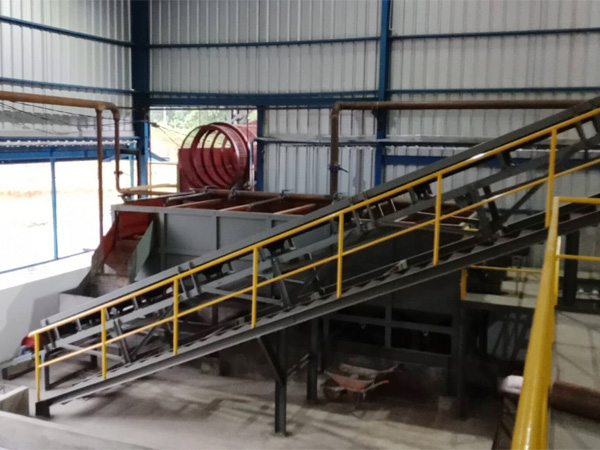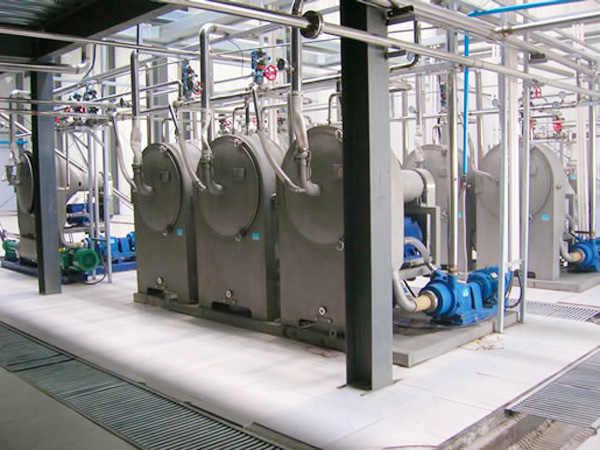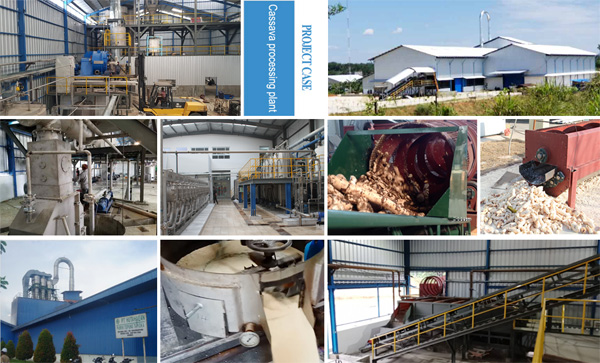Cassava industry in Nigeria analysis
In 2010-2017, the global cassava processing market has a compound annual growth rate of approximately 2.1%, and the 2017 production reached approximately 284.9 million tons. Most of the populations in Africa, Latin America and Asia depend on cassava for their livelihoods because cassava provides food and business opportunities for farmers and traders. Taking the Nigerian cassava industry as an example, Doing Company mainly analyzes the current status and development direction of the cassava industry in Nigeria. Now, the Nigerian government plans to transform from a single oil economy to a diversified economy. Nigeria, as the world's number one cassava producer, develops the cassava industry, which is one of the government's strategic plans. However, there are still many shortcomings in the development of the cassava industry value chain in Nigeria, it needs further improvement.
First, the cassava variety needs to be improved. At present, the commercial development value of Nigerian cassava varieties is low. The starch content of cassava grown in Nigeria is generally low. If the variety of cassava starch content reached to 40% of India and Thailand, the commercial development value of cassava industry in Nigeria can be higher.
 Cassava production and processing
Cassava production and processing
Second, the cost of agricultural materials is high, affecting the level of cassava yield. In the growing season of cassava in Nigeria, the control of weeds is not in place, and it is basically in a state of natural growth. The cost of agricultural materials such as pesticides is too high, which affects the enthusiasm of farmers for large-scale production of cassava. At present, Nigeria produces 10.6-15 tons of cassava per hectare, to further increase productivity, the government needs to offer certain subsidies.
Third, the production of cassava lacks the correct value orientation. The positioning of Nigerian cassava processing enterprises is still oriented to local basic consumption and as a staple food substitute. There is no commercial development and export-oriented production target of cassava industry in Nigeria, and there is no technical and financial support for refined processing. Cassava can actually be processed into industrial starch, alcohol, syrup, sweeteners, animal feed, and cassava beer. The above-mentioned by-product development has success stories in many countries in Africa for reference. At present, the international market price of cassava starch is 200,000 naira per ton, and the annual output of cassava is 46 million tons in Nigeria. The cassava starch industry value chain can be embodied. According to incomplete statistics, Nigeria imports cassava by-products of 580 million US dollars each year. That is to say, the development of cassava resources can achieve high returns from local demand in Nigeria. If Nigeria can open the global market, the profit definitely will be very high.
Fourth, the lack of basic storage and processing facilities, Nigeria's cassava loss rate after harvest is too high. Although the workload of cassava production in Nigeria is much smaller than that of other food crops, the lack of warehousing and processing facilities, the high rate of post-harvest losses, and the high transportation costs caused by various factors have affected the further development of the cassava industry in Nigeria.
 Cassava processing plant
Cassava processing plant
In terms of cassava production, Africa is the world's largest cassava producing area, accounting for nearly 55% of the world's cassava production. However, Africa's unit cassava production is also the lowest in the world, only 10 tons per hectare. Low productivity is the result of mechanization and low utilization of processing tools. In the processing of cassava, African cassava products have always been relatively less competitive in the world market, because the production and processing of African cassava is mainly for survival, not for commercial use. Currently, major cassava production countries in Africa have recognized the need to develop technologies to grow, harvest and process cassava to increase productivity and reduce post-harvest losses.
In some parts of Africa, cassava accounts for more than 50% of people's daily diet. Among all African countries, Nigeria's cassava production ranks first, accounting for about one-fifth of the world's cassava production. Nigeria produces about 45 million tons of cassava annually. Cassava is easy to grow in arid areas with very limited rainfall, so Nigerian farmers choose cassava for their stubborn viability in drought. It is estimated that by 2020, Nigeria's cassava production will double, but currently 90% of cassava is still consumed by Nigeria local. Although high-quality cassava has prompted Nigeria to establish some cassava starch industry plant, Nigeria's high-quality cassava starch industry is still dominated by small scale and limited profitability. End users of cassava starch include Nestle, Nigerian Flour Mill and Cadbury.
 Cassava starch factory
Cassava starch factory
Traditionally, cassava is one of the main foods of Nigerian farmers, and it is widely consumed as a daily diet in other African countries. Cassava roots are used to make different types of local foods such as starch, cassava flour, garry and alcohol. Nigerians say that if they commercialize cassava, cassava may even replace the status of oil, which will promote their economic development and create more jobs. However, in fact, the current industrialization and commercialization of the cassava industry in Nigeria is seriously inadequate. The annual demand for cassava starch in Nigeria is about 350,000 tons, but the national supply is about 300,000 tons. It needs to be imported from other countries to meet domestic demand.
Cassava is the most important root crop in Nigeria. In Nigeria, cassava accounts for about 45% of Nigeria's agricultural GDP, mainly for food or household use, its industrial processing and utilization is very limited. In order to promote the industrialization of the cassava industry in Nigeria, Nigeria has launched a government initiative that “containing at least 10% of cassava flour in breadmaking” has achieved great success. Most importantly, the policy of adding 10% cassava flour to bread and other sweets has made the cassava industry develop fast that employs millions of Nigerians to provide income for farmers and a large number of processors. A direct consequence of the policy of introducing 10% cassava flour in bread is that Nigerian flour processing companies have increased the demand for high-quality cassava flour by 300,000 tons per year, a move that has driven the development of the Nigerian cassava industry.
 Cassava processing project made by Doing Company
Cassava processing project made by Doing Company
Cassava starch is an important product of cassava after processing. The cassava root is washed and crushing, and then the wet slurry is squeezed to extract the liquid for drying. The cassava starch will remain after the water is removed from the wet starch slurry. This starch is then used in the food, paper, textile industry, and mineral wool and clay industries. If the potential of cassava is properly released, the cassava industry in Nigeria may be more likely to contribute to the development of industrialization than any other industry. Currently, Nigeria produces about 45 million tons of cassava. Since the federal government wants to reduce import dependence and save scarce foreign exchange, a national program aims to increase the production of cassava starch to replace corn starch. Nigeria's demand for cassava starch is high, and the driving force behind this demand is the government's policy on replacing cornstarch with cassava starch.
As a manufacturer and supplier of cassava processing machines from China, Doing Machinery has provided cassava processing machines for many customers from Nigeria. We will continue to pay attention to the development of the cassava industry in Nigeria. After all, China is also a major consumer of cassava products, the number of imported cassava products is huge each year.
 PREV:Is tapioca starch the same as tapioca flour?
PREV:Is tapioca starch the same as tapioca flour?
 NEXT:Analysis on the development status of world cassava production
NEXT:Analysis on the development status of world cassava production




